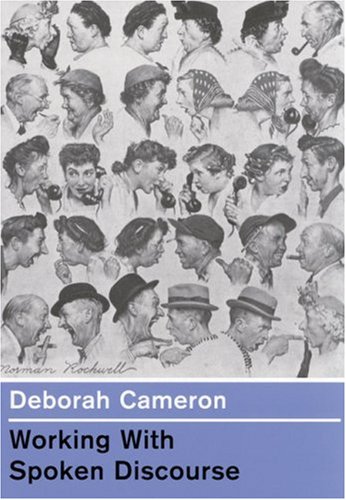

Most ebook files are in PDF format, so you can easily read them using various software such as Foxit Reader or directly on the Google Chrome browser.
Some ebook files are released by publishers in other formats such as .awz, .mobi, .epub, .fb2, etc. You may need to install specific software to read these formats on mobile/PC, such as Calibre.
Please read the tutorial at this link: https://ebookbell.com/faq
We offer FREE conversion to the popular formats you request; however, this may take some time. Therefore, right after payment, please email us, and we will try to provide the service as quickly as possible.
For some exceptional file formats or broken links (if any), please refrain from opening any disputes. Instead, email us first, and we will try to assist within a maximum of 6 hours.
EbookBell Team

4.4
22 reviews
ISBN 10: 1446224052
ISBN 13: 9781446224052
Author: Deborah Cameron
"An exemplary textbook. Making even the most complex ideas fully accessible, it is grounded in an extensive literature, filled with engaging examples, and offers ample suggestions for independent research. It’s been a key text in my classes for over a decade and, as fresh and relevant as ever, will continue to buttress my graduate seminars and undergraduate courses alike." - Professor Crispin Thurlow, University of Washington Comprehensive, practical, lively and accessible, Working with Spoken Discourse is the much-loved benchmark for learning to do discourse analysis. It combines theory and practice to give students the grounding they need in practical techniques of analyzing talk and how to apply them to real data. Begins with the ‘why’ and ‘how’ of doing discourse analysis Packs examples into every chapter to help explain complex concepts Uses exercises and activities to reinforce what you’ve learned Leads you through the practicalities of designing your own project Exceptionally clear, and perfect for undergraduates starting a project, this is the essential guide to spoken discourse.
Introduction
I Preliminaries
1 What is discourse and why analyse it?
2 Collecting data: practical and ethical considerations
3 Transcribing spoken
II Approaches
4 Approaches to discourse analysis: an initial orientation
5 Situations and events: the ethnography of speaking
6 Doing things with words: pragmatics
7 Sequence and structure: Conversation Analysis
8 Small differences, big difference: interactional sociolinguistics
9 Hidden agendas? Critical discourse analysis
III Applications
10 Working with spoken discourse in social research
11 Identity, difference and power: locating social relations in spoken discourse
12 Designing your own projects
Bibliography
Index
deborah cameron working with spoken discourse
cameron d 2001 working with spoken discourse
deborah cameron working with spoken discourse pdf
working with spoken discourse pdf
spoken discourse example
Tags: Deborah Cameron, Spoken Discourse